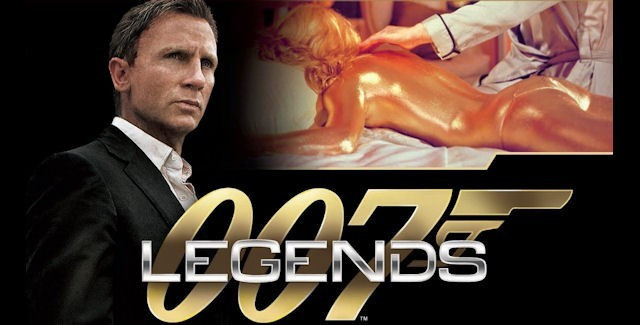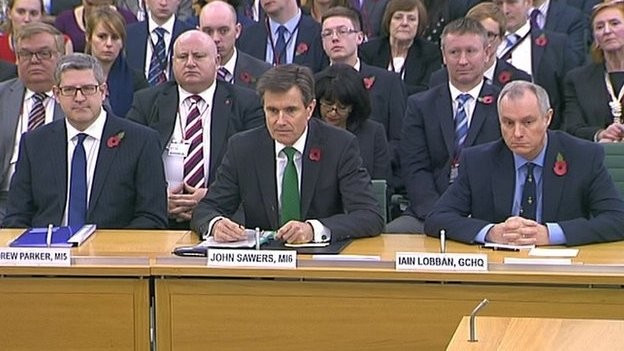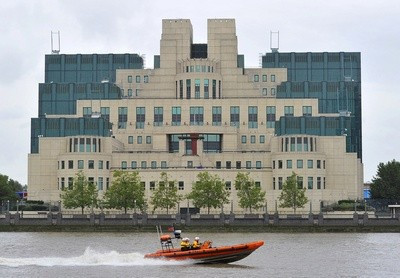Britain's Spy Chiefs Throw Off James Bond Image to Attack NSA's Edward Snowden Leaks

Britain's top spooks finally came out of the shadows to reveal what most people have suspected for years - there is more of Smiley's People than Jason Bourne about them.
Even as the bosses of MI6, MI5 and GCHQ revealed some fairly chilling facts - that they had disrupted 34 terrorist plots in the UK in the last eight years, for example - they still managed to look like the chief executives of a Swindon-based IT company rather than the men in whose hands the fate of the nation rests.
Put simply, they just weren't dark enough, not spooky enough. The head of the Security Service (MI5), Andrew Parker turned out to be positively approachable, possibly even jolly. Where was the cold-eyed, emotionless, morally-questionable character we had all come to see?
His opposite number at the Secret Intelligence Service (MI6), Sir John Sawers, had a touch of the suave about him and could just about have pulled it off as Q (actually his real moniker is C or "the Chief") in one of the Bond movies.
And it was he who made the only reference to Ian Fleming's fictional character throughout the 90 minute hearing, and that was in order to dispel any lingering ideas that his people operated like that.
Only the head of the the GCHQ snooping centre in Cheltenham, Sir Iain Lobban managed to display a sliver of sinister, just as he was reassuring the Commons Security and Intelligence committee that there was absolutely nothing sinister about snooping.
"I am looking for needles and fragments of needles. I don't look at the surrounding hay," he said in answer to concerns over GCHQ's alleged habit of monitoring phone and internet chatter.
So, job done then? Probably.
But it goes without saying there was a deeply serious side to this unprecedented appearance.

The issue that animated the three men the most was when the MPs asked them about the effect the leaks from US security contractor Edward Snowden might be having on their operations.
They were united in their condemnation and insistence that their work was being made harder by the leaks "for years to come".
Sawers declared the leaks had been "very damaging" and had put operations at risk. "Our adversaries are rubbing their hands with glee. al-Qaida is lapping it up," he said.
Pressed about the Guardian's actions in reporting the leaks, and whether they really had done damage, he said the newspaper was: "not particularly well placed to make that judgement."
Lobban said his staff had evidence that Middle East and Afghanistan terrorist groups had been heard discussing the Snowden revelations in specific terms, particularly how to avoid being bugged.
On the current threat to the UK, Parker referred to a recent court case, saying MI5 covert operations had picked up plotters discussing an attack bigger than 7/7 and he told the MPs the vast majority of plots came from people living in the UK, particularly where there had been links with al-Qaida abroad - so-called terrorism tourism.
Lobban attempted to calm recent anxieties about the scale of snooping operations in the UK, declaring: ""If you are a terrorist, a serious criminal, a proliferator, a foreign intelligence target or if your activities pose a genuine threat to the national or economic security of the UK, there is a possibility that your communication will be monitored.
"If you're not and if you're not in contact with one of those people, then we won't be, we're not entitled to," he said.
The MI6 head also insisted his staff always operated within the law and had very strong ethical standards. If there was ever any question about an operation he was quite happy to ring up the Foreign Secretary in the middle of the night to get his ruling, he said.
And after their 90 minutes was up, the three men slipped back into the shadows but with much of the mystery and cloak-and-dagger mythology surrounding them lifted forever.

© Copyright IBTimes 2024. All rights reserved.























